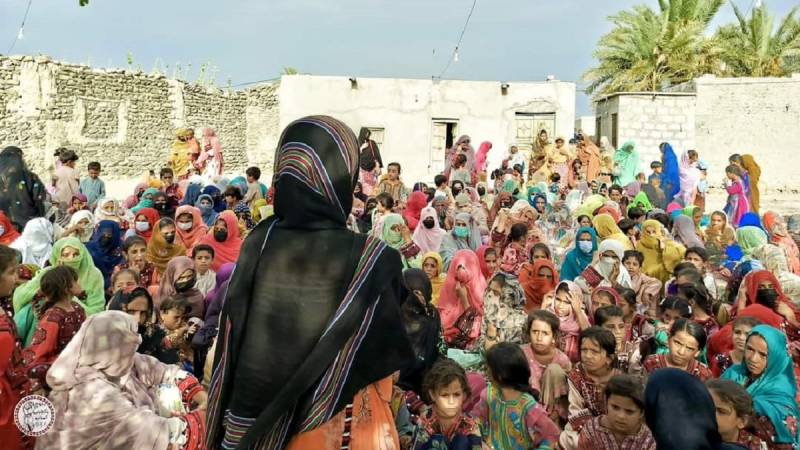
Once portrayed as vulnerable and sensitive, the Baloch women are rising up, hoisting the flag of resistance, and shattering stereotypes. These women have transformed into iron ladies, leading one the most powerful political movements in the region. Gone are the days of romanticised folk tales and poetry, where women were depicted as passive beauties waiting for their prince. The Baloch women of today are celebrated as leaders, front-line fighters, and activists, facing down 'lathi' (baton) charges, tear gas, and imprisonment with unwavering courage.
In a region plagued by fear, information blackouts, and human rights violations, these Baloch women are mobilising the masses, defying official restrictions, and leading the charge for justice. The upcoming Baloch national gathering, a Baloch Raji Muchi, on July 28 in Gwadar, called by the Baloch Yakjehti Committee (BYC), is a testament to their unwavering resolve.
But the state's response has been disappointing. The government has been creating hurdles, targeting peaceful activists by lodging FIRs against them, harassing them, and using brute force. These actions suggest the state is afraid of the growing power of the people. Despite these attempts, the caravans of protesters led by Baloch women continue to march forward. Their demands are simple and clear: the safe recovery of missing persons, an end to human rights violations, and a halt to underdevelopment and resource exploitation of the region.
This is why they have chosen to converge in their thousands on Gwadar, the crown jewel of the China-Pakistan Economic Corridor (CPEC). They hope to put the spotlight on this city's stark contrasts. Even as billions of dollars flow in to develop the Gwadar Port and the upscale housing societies surrounding it, the city's native population struggles for even the most basic necessities: drinking water, electricity, healthcare, and education.
Despite being the starting point of CPEC, Gwadar's citizens feel they have become third-class citizens in their own city and country. They feel ignored and neglected by the powers that be. Much effort has gone into keeping the true picture of the city's poverty out of the glossy brochures about the city and even from those visiting for investment purposes.
The recent national gathering in Gwadar is thus a desperate cry for attention, a plea to show the world the reality of Gwadar, that beyond the façade of development lies a city where thousands live in poverty, without access to basic amenities. That the city's welcome development should not come at the cost of the well-being of its people. The gathering is a reminder that Gwadar is more than just a port or a collection of newly-built housing societies – it's a city with a heart and soul, yearning for justice and equality.
It's time to acknowledge the disparities and address the grievances of Gwadar's residents.
One thing is now certain—the voice of Baloch women will not be silenced. They will continue to rise, resist, and inspire hope in a region torn apart by conflict and oppression. Their struggle is a beacon of light, illuminating the power of peaceful protest and assembly, a fundamental right of every citizen.
For too long, the voices of the Baloch people have been muzzled. But the silence has been broken, and the roar of Balochistan can no longer be ignored. The success of this gathering will be a triumph for democracy, law, and freedom of speech. Any use of force will only make this moment more pivotal.
The leadership of Baloch women has ignited a new hope, a new chapter in the struggle for justice and freedom of the Baloch people.
What will happen on July 28? Only time will tell. But one thing is certain - the roar from Balochistan will be heard far and wide.

